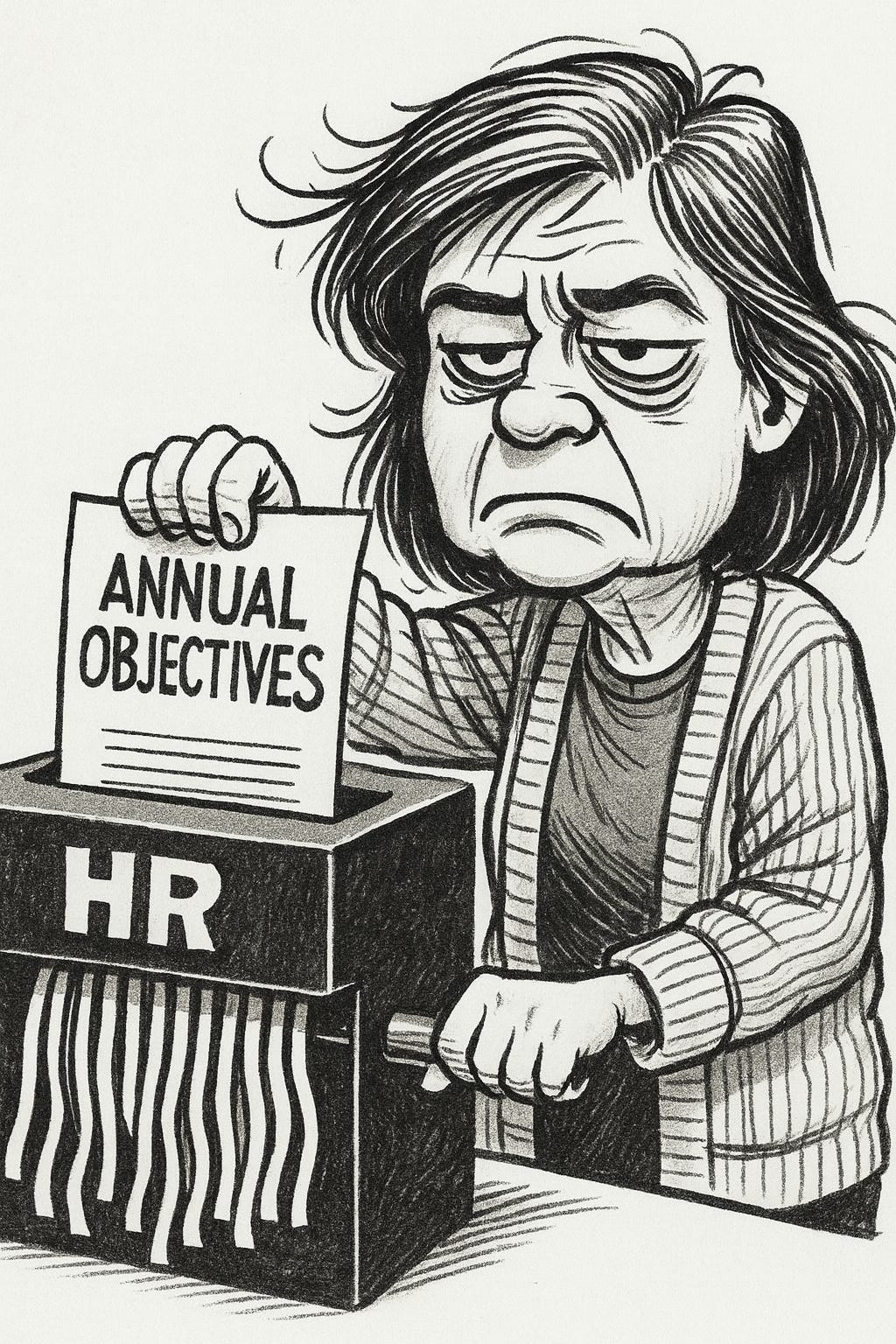Performance objectives as playbook
If you have to do them anyway, you might as well make them useful.
A friend recently posed a provocative question:
Don’t most people set their objectives once a year, upload them to HR, and forget they exist?
In a lot of cases - yeah, probably.
But if that’s how your organization treats individual performance objectives, you’re missing the point.
If you do them right, an employee’s annual objectives can be the guidepost they use all year long to set their priorities, identify opportunities, and measure their progress.
Let me state this up front: I’m a nerd.
One of the things I looked forward to the most in Corporate America was when the company announced their goals each year.
I know. Like I said – nerd.
But I really liked the annual opportunity to reset and ensure our department was in lock step with what the company was shooting for.
We’d lay out everything we were working on and map it to the company’s objectives. If something didn’t fit, we’d put it under a microscope to determine if it was still worth doing.
If something was missing - that would be the fun part: figuring out what we could do to help the company meet its goals.
Once we’d agreed on the team’s goals, we would work on our individual objectives for the year.
Each of us would take a hard look at what we were doing to see what still fit. We’d ditch the stuff that didn’t. We’d add stuff that did.
Every individual goal we created laddered up to the team, department, and company goals. We could all point to areas on the company scorecard where we contributing to the organization’s success.
Here’s where I find objectives to be most useful:
You can organize your team meeting agendas by objective, celebrating progress against a goal, generating team support for where you’re falling short, or dedicating time to discuss if you need to rethink the goal entirely.
You can use individual objectives to lend structure to your one-on-ones. Employees can use their time with you to test out new ideas for how to hit a goal or share where they’re struggling so you can help.
If you follow this system all year, there will be no surprises come performance review time – and any documentation you need to submit to HR for raises and bonuses will write itself.
Objectives can be a painful, box-checking ritual - or they can be the foundation for your team’s success each year.
Choose wisely.






We do not have objectives in our company, at least not ones shared with the employees :) so I am setting department objectives, since it turns out, if you do not have nowhere to go, you will remain in the same place :)
This is a much better way to think about future intentional action than many managers have. Thanks for providing guidance on how to do it!